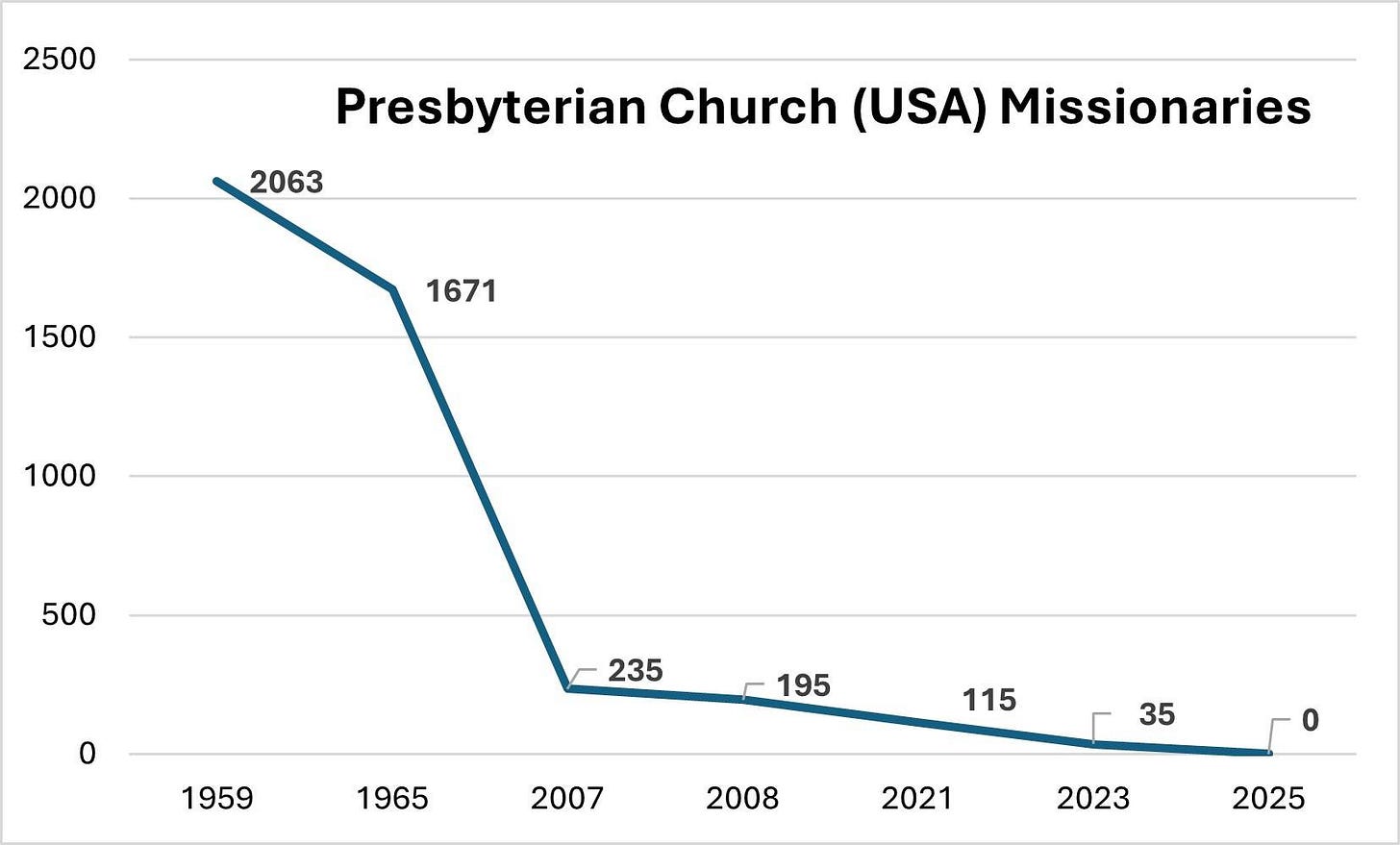It was announced a few weeks ago that the Presbyterian Church USA (PCUSA) was shuttering its missions agency. This should come as no surprise to anybody. We should expect more mainline denominations to shutter their global missionary efforts based on a combination of demographics (their churches are in statistical freefall) and a change in missiological focus, something that occurred over a long time.
Whenever this sort of thing happens, lives are dramatically changed. I feel for those who are losing their jobs, relationships, and other fall out from this decision by the denomination. There are communities, churches, and relationships among national partners that will be affected. This has far-ranging effects on many, well past the individuals directly involved.
The change in missiological focus correlates to a definition of missions that divorces conversionistic Christianity from a range of other issues. These issues are essentially the same issues that progressives care about politically. Is it unfair to depict the PCUSA mission as progressive? I don’t think so. In a letter written by a number of their staff, they wrote:
When progressive Christians, communions, and mission-sending organizations leave a mission field, their absences are inevitably and invariably filled with voices, personnel, and mission partners who view Jesus and his ministry differently, in less inclusive and liberating ways,” the letter states. “Specifically, this impacts work with women and the ordination of women, with people in the queer community, and with communities on the margins.
In other words, these missionaries were specifically concerned about the same issues that are often mentioned in political discourse. The concern here is that these issues will not be well represented in the mission field and that more conservative influences will fill the gap.
The exit of agencies like the PCUSA will be statistically insignificant because the decline actually happened decades ago. The fall off in missionary deployment in the graph above shows the significant drawdown from the mid-1960s to 2007. This correlates with theological change around the purpose of mission as these congregations and the leadership of the PCUSA became more progressive. Some stalwarts have carried on since 2007, but the financial reality of lost membership eventually claimed the agency and now it is history.
I wrote a post a while back that noted that the future of missions from the US is not progressive. The end of the PCUSA mission agency is one more sign of this reality. This should not be controversial (yet it was for some). The kind of churches that have been sending missionaries and money for the past few decades are typically conservative congregations. They care about evangelism, discipleship, and planting churches. Additional ministries are often seen as supporting these activities, not supplanting them.
Balancing this story in a different direction is another denominational change. The Global Methodist Church is forming hundreds of new, more conservative congregations. We can expect a fresh interest in global missions from this Methodist wing of the church. When combined with partner Methodist churches from around the world and particularly in Africa, this is a potent, new force for the global Great Commission.
I have observed that these changes are primarily issues for those within denominations. Non-denominational agencies are less likely to suffer from this sort of theological drift, though I am sure it happens. Non-denominational agencies tend to falter more from aging out, an inability to keep pace with a changing world, and in some cases, a more fundamentalist bent that keeps them from being able to adapt.




